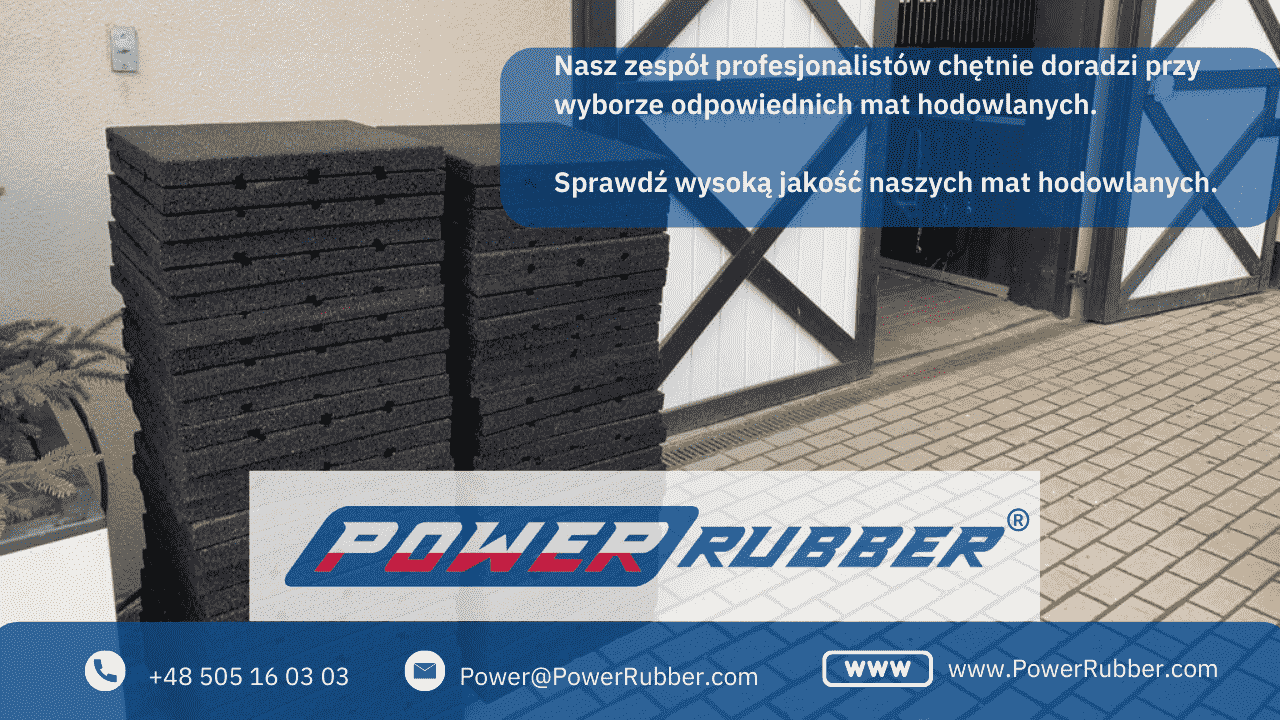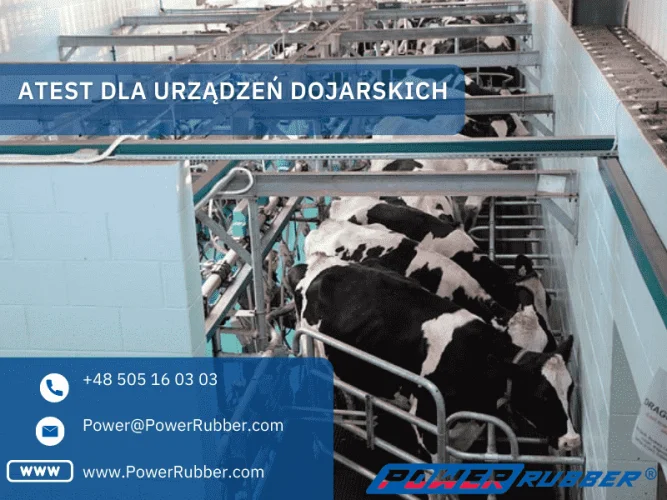Thick Rubber Plates
15.01.2022
Each newly introduced device intended to work in contact with food should have an appropriate certificate. To be able to operate the milking equipment, it is worth considering purchasing a product with an approval. According to the European Union recommendations, devices that come into direct contact with food should be certified at least once a year. In Poland, approvals for devices are handled by theNational Institute of Public Health - National Institute of Hygiene (PZH). This institution, founded in 1918 under the name of the State Central Epidemiological Institute, and on September 7, 1923, renamed the PZH, deals with, among others, hygiene issues, and also conducts service, research and scientific work. After 2002, the Act on the Conformity Assessment System (Journal of Laws of 2002, No. 166, item 1360) informs that applying for approvals is voluntary. However, the obligation is not released from materials and products in contact with water intended for human consumption, as stated in the Regulation of the Minister of Health on the quality of water intended for human consumption of December 7, 2017. item 2294). Therefore, the National Institute of Hygiene issues certificates confirming that the product is adapted to work in conditions where the machine comes into contact with food. The most common certification is silicone products. 

Animal safety and approval
Too many somatic cells in a unit of milk volume, as well as diseases of the chests and the udder are a common problem associated with the process of malfunctioning of the milking equipment. The correct operation of the machine is an extremely important element both for health and safety reasons, but also for the welfare of animals. Parameters of milking devices, such as negative pressure in the lines, pressure fluctuations under the teat, duration of the suction cycle, duration of the massage cycle, diameter of the discharge lines, and the diameter of the collector nozzles should be precisely known to the operator and who evaluates the efficiency of the milking machine on a daily basis. This will ensure more conscious use, and a weekly routine inspection of the technical condition of the device will allow for its safe use and obtain a high-quality product.
Checking the PZH Certificate
Pursuant to the current law, in Poland, each manufacturer, as well as persons responsible for placing a certified product on the market, has the right to copy, photograph, and distribute the attestation document in a digitized form for marketing or information purposes. According to this assumption, each product that has received an approval should make it available to the public without any major problems, so that the customer can read the approval before purchasing. It is also worth remembering about the graphic symbol that is issued together with the certificate that the manufacturer can put on the device. It is worth looking for a navy blue and white circle with a tree graphic and the abbreviated name of the institution issuing the certificate, i.e. the National Institute of Hygiene (PZH). Such a sign ensures that the product is certified by the National Institute of Public Health.Selection of a certified device
There are some important facts to keep in mind when choosing a milking machine. Approved devices are the best choice when it comes to working with animals or people. Approved devices allow you not to expose yourself to serious consequences resulting from unknowingly endangering people or animals, or harming health or disease. They also allow to maintain the highest quality of the milk produced. It is the manufacturer of the device who becomes responsible for the safety of the product, which is a very important factor from the point of view of the consumer and user of the machine, which proves that the purchase of a certified device is right. The process of the milk supplier's participation in tenders or supplier selection processes is also a non-negligible aspect. Having certified equipment can sometimes be a requirement on the part of the company that announces the tender, and otherwise it can also be a deciding factor in selecting a supplier from among others that do not have such certification, thanks to the highest rating. Possession of certified devices may result in the expansion of the farm's activity by cooperation with new enterprises.Approval for devices in use
Due to the frequent use of milking equipment (twice a day, and even more often), in order to prevent unforeseen breakdowns, practice should be considered to visually assess the existing milking installation before each commenced milking. Such routine activities will avoid unnecessary interruptions and faults in the operation of the system. In addition, these simple procedures will reduce the likelihood of diseases and inflammation of the mammary gland in animals, and will also provide the farm owner with the highest quality milk he produces. In addition, once a year, it is worth having a qualified employee inspect your milking system, whose qualifications allow for maintenance work and issuing a certificate for milking equipment. The cost of the technical inspection depends on the size of the milking machine and its type, and is also not constant. The expense we have to be ready for oscillates around PLN 100-200. The inspection consists in checking the general condition of the device, the indications of the vacuum gauge, i.e. the instrument responsible for pressure measurement, are examined more closely. The person dealing with the maintenance of the device will probably also look at the efficiency of the vacuum pump, check for leaks in the milk and air piping systems. The specialized tools owned by a qualified employee of a company dealing with approvals will allow for making precise adjustments that may be required by the device used on the farm.Approval and sanitary controls
The certificate confirming the compliance of the product with the applicable standards is also an element of sanitary control. IVeterinary inspectors pay attention to the fact that the milking equipment should have a so-called declaration of conformity. Having such a declaration indicates that the milking equipment used by us, which is in direct contact with the raw product, was made of materials that prevent contamination from entering the milk in form of toxic substances. The certificate of conformity is also a guarantee that the product purchased by the user will be allowed to come into contact with food. Therefore, if the certificate is not available, it may result in the imposition of a fine on the owner of the uncertified machine. It is worth mentioning that the declaration of conformity is a document that the farm owner is obliged to present during the inspection by the veterinary inspector.
